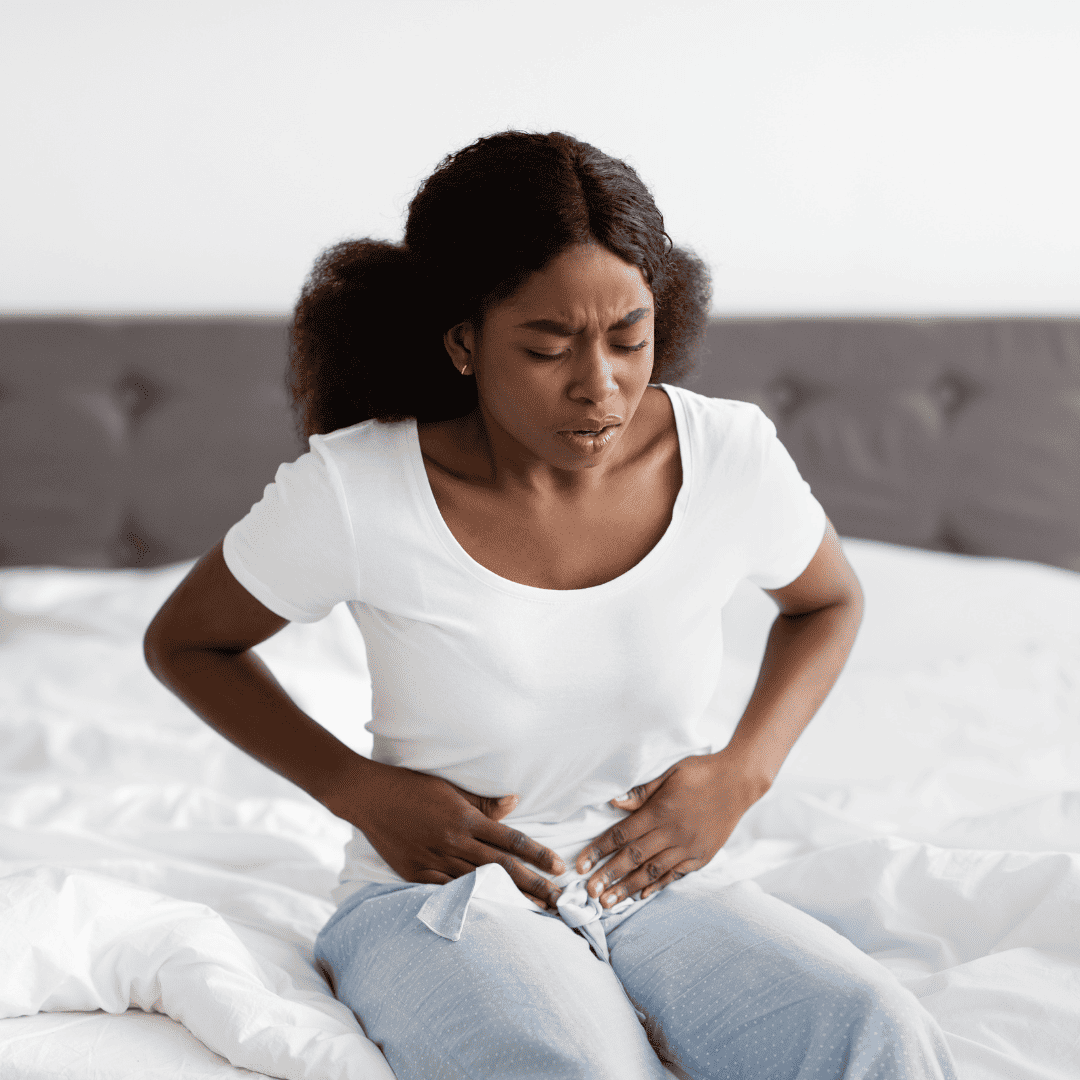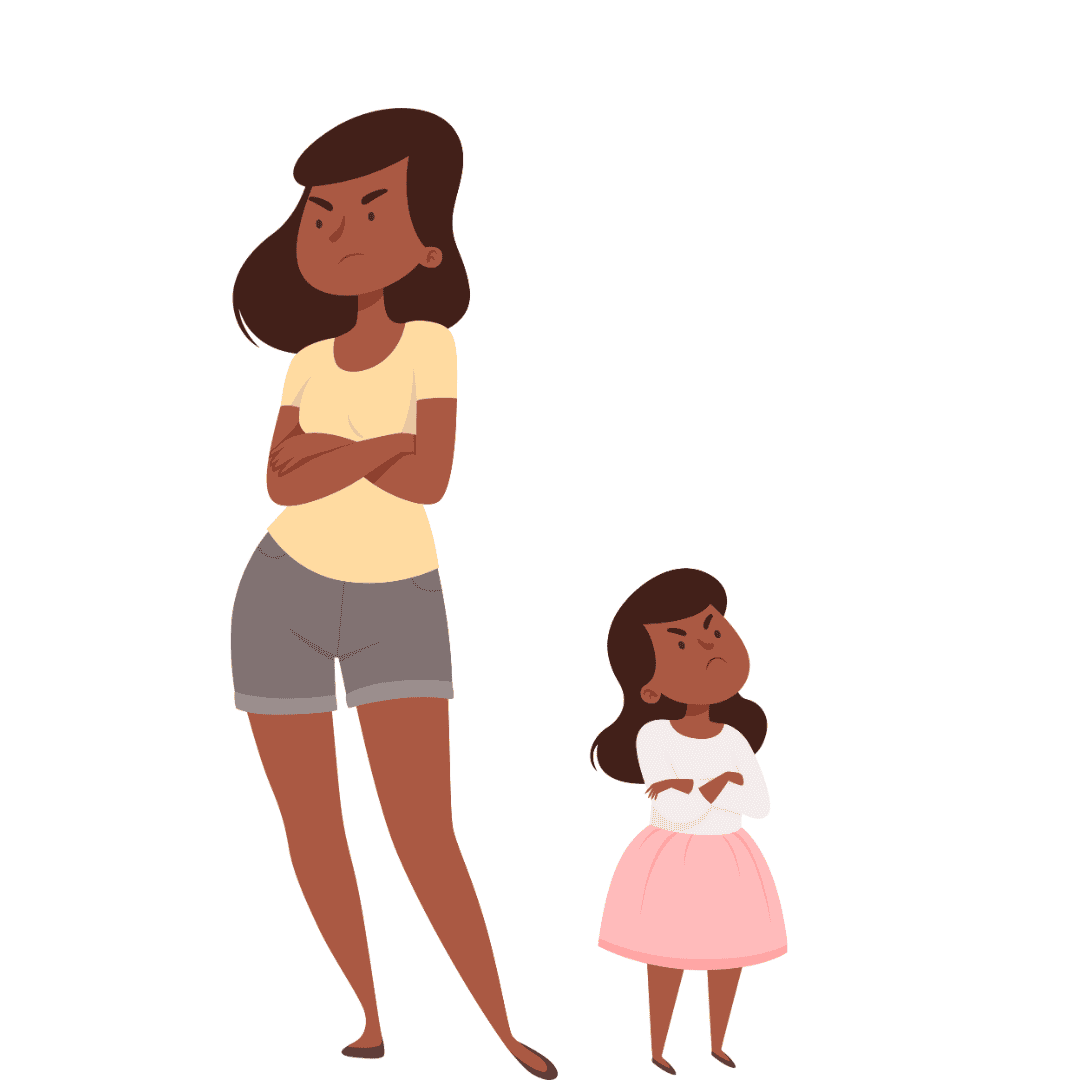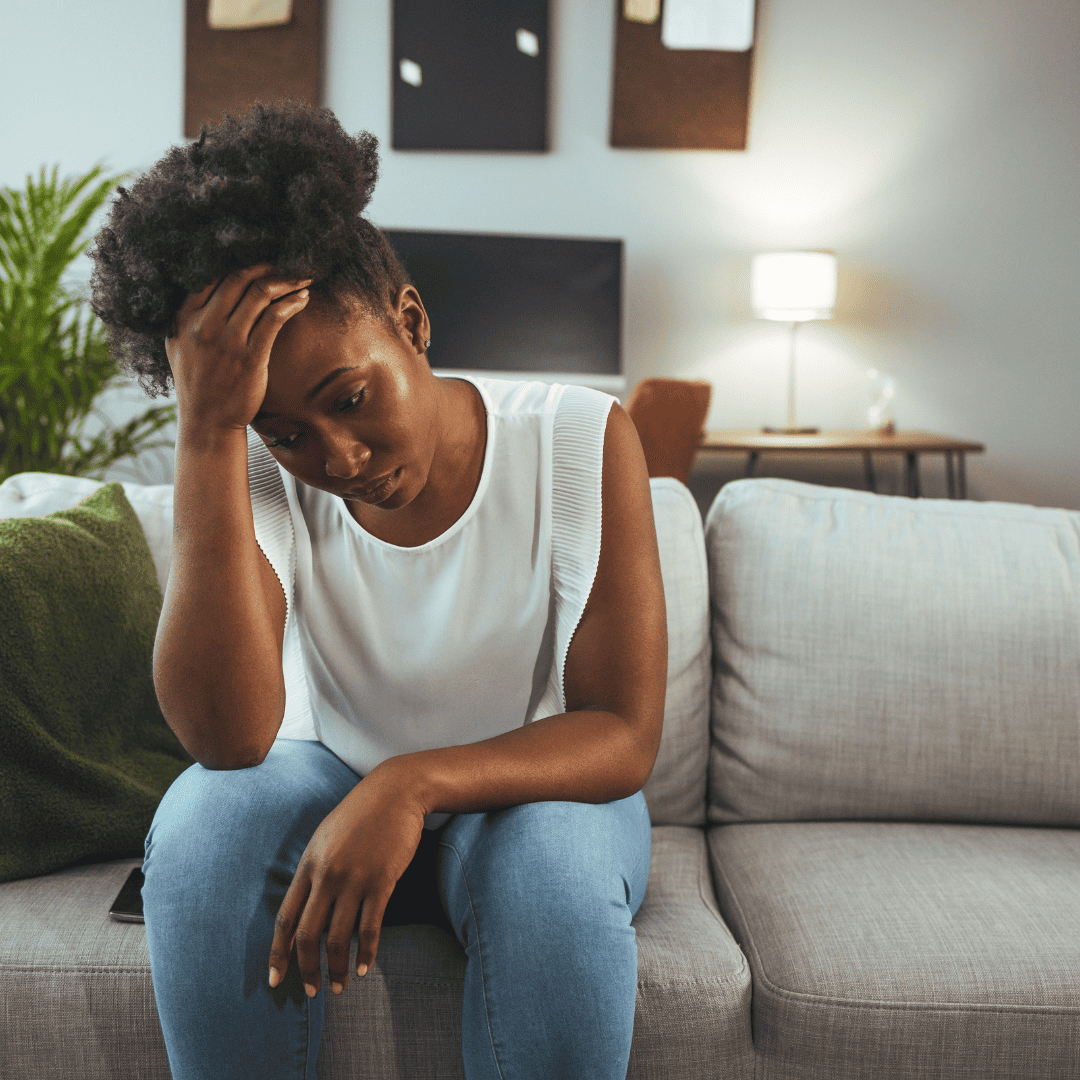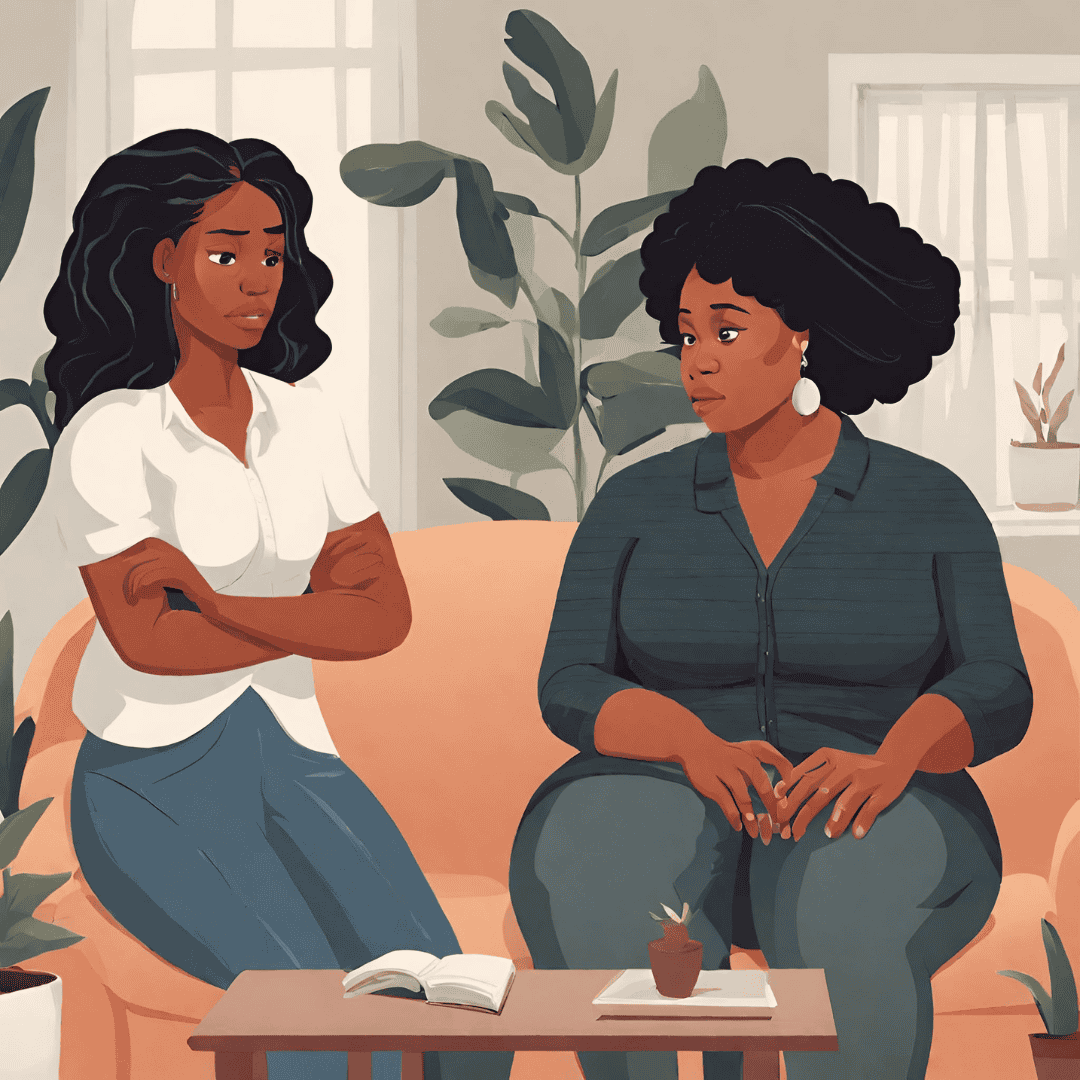-
Understanding Fibroids: What Black Women Need to Know
Disclaimer: I am not a qualified health professional and this is strictly based on experience and this will be used to educate readers. Read with caution.
This is a silent condition because I have noticed that we don’t talk about fibroids in the black community, it is not something that is spoken widely like many things such as mental health.
It is something that needs more attention, particularly for black women. I’m hoping this topic can spark a conversation amongst black women who have this condition.
Also, I was diagnosed with fibroids 2 years ago and it is fairly small (I hope it stays that way until I get rid of them because they shouldn’t be living on my uterus, it’s disrespectful).
What are Fibroids?
According to the NHS, “fibroids are non-cancerous lumps which can grow in various sizes on or around the uterus and it varies from woman to woman.” Some women may experience stronger symptoms of the condition compared to women who may have fibroids but they don’t have any symptoms.
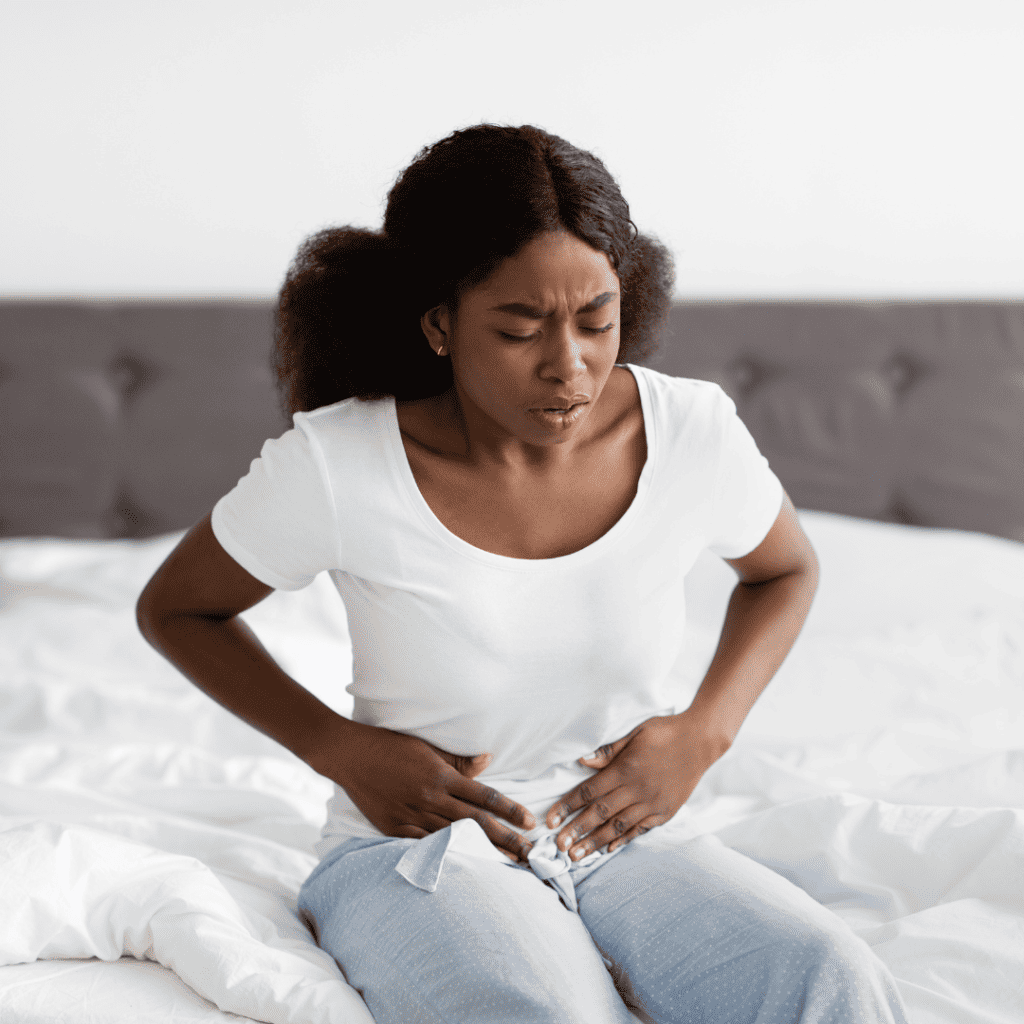
A black woman sitting on the bed with her hands on her stomach feeling stomach cramps. Photo by Prostock studio. Racial Disparities in Health
As mentioned by the Huffington Post, it has been estimated that “25% of black women are more likely to be diagnosed with the condition than 6% of white women. “
Fortunately, this condition is not cancerous, however, black women are more prone to developing fibroids than other races of women.
A study by the University College of London argued that “racism and discrimination contributed the most to the health disparities of melanated people.”
Furthermore, there has been plenty of evidence that has been documented when it comes to the lack of belief that black women require attention.
Similarly, a recent study by the Black Women’s Health Imperative has shown that “80% of black women and 70% of white women could develop fibroids by the time they are 50.” These numbers are of great significance because they indicate the seriousness of fibroids and their need for greater attention.
An example would be the case of gynaecologist Dr Sims who experimented on enslaved black women without anaesthesia during slavery in the USA. This affects the way black women are perceived in the healthcare industry.
What causes Fibroids?
The causes of fibroids remain a mystery, however, there have been various studies that have mentioned different possible causes that may explain why the condition affects black women at a higher rate.
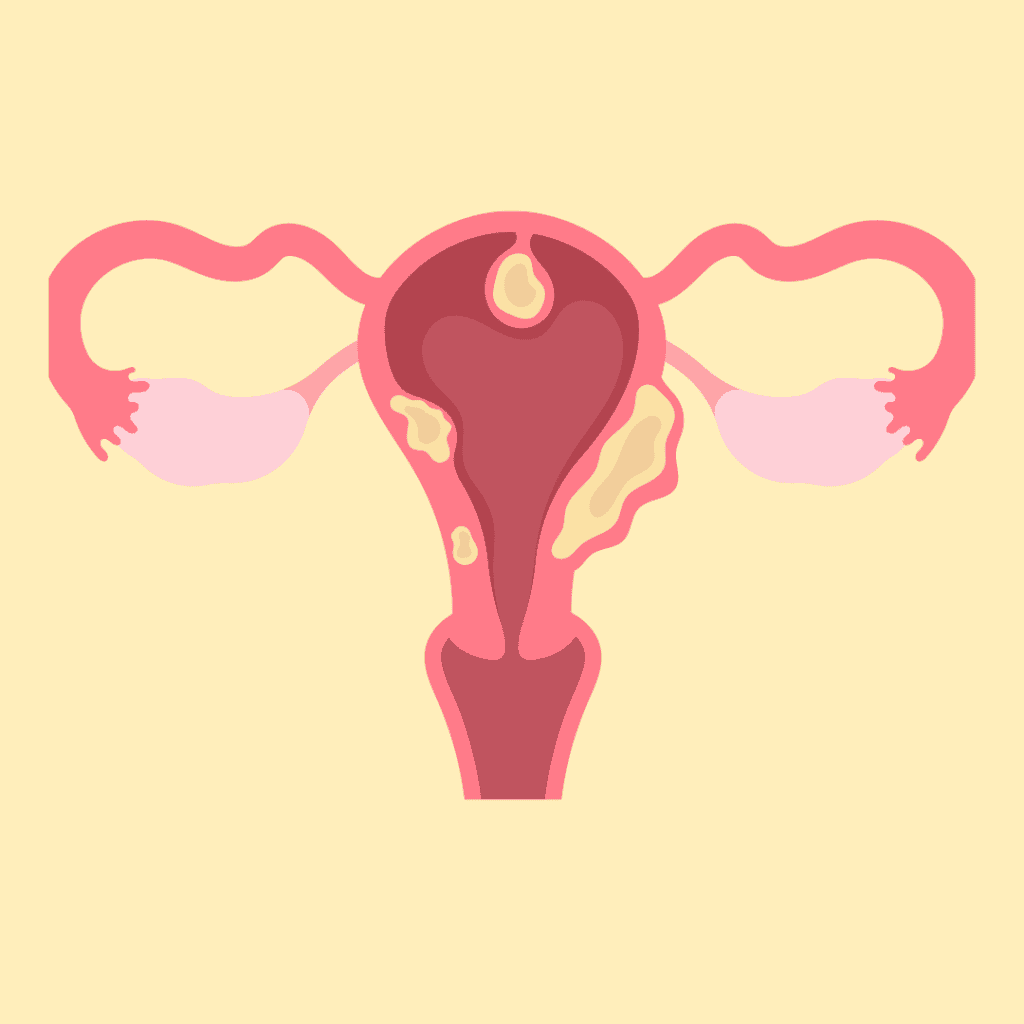
A graphic by Pepermpron of the female anatomy showing the uterus with uterine fibroids. Early Menstruation
According to a study by the National Library of Medicine, if a woman experiences her period early, it may increase the likelihood of developing fibroids. This is interesting because if a woman received her periods early and ended up getting diagnosed with fibroids as an adult.
Race
Similarly, the British Journal of Obstetrics and Gynaecology stated that the likelihood of black women “being diagnosed is 2 to 3 times higher” and this is a tremendous figure which shows that race plays a significant role and that black women need to focus more on our reproductive health.
Demographic of fibroids
Another study mentioned family history and how this may have a bigger impact since it affects our reproductive system and our overall health. Family history implies that fibroids may be genetic- if someone in your family has fibroids then this may mean it could be inherited.
Furthermore, this is significant because this factor focuses on genetics and this may make us question whether or not developing fibroids is inherited.
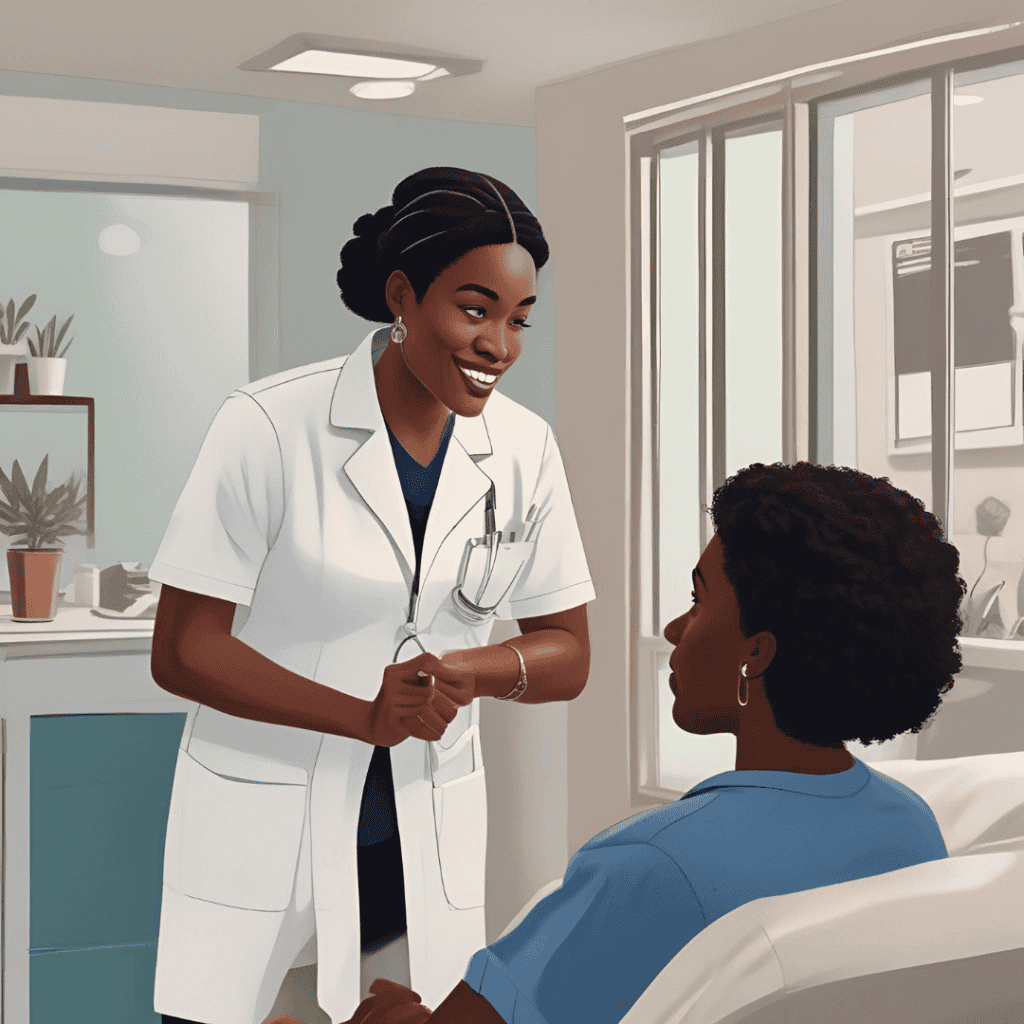
An illustration made by AI on Canva of a black doctor talking to a black patient in a hospital. What are the signs of the condition?
- Heavy periods
- Lower back pain
- Fatigue
- A frequent need to pee
Summary
I hope that this issue will be discussed more widely because this isn’t normal. It is one of the things that is going to make you wonder why some of us have non-cancerous tumours, because as black women we deal with enough things.
I hope you enjoyed reading this article and hopefully, this article helped you have a better understanding of the condition. Share this post with other black women, comment below, and let me know your thoughts and experiences about fibroids.
Afro Lit Stories


Healing through storytelling, elevating black millenial women, one mindset shift at a time
